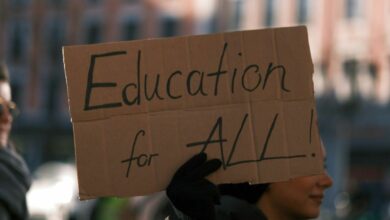Wow, 2023 really flew by! In the blink of an eye, we will be welcoming a new year. But before we gear up our resilience to keep fighting for a better Malaysia, let’s take a moment to rewind and reflect on the progress and challenges we’ve faced in this year’s Malaysia human rights journey, shall we?
Highlights of the year:
1. Online and physical stalking is now a crime in Malaysia! Finally!!!

Earlier this year, the Dewan Rakyat passed amendments to the Penal Code, criminalizing both physical and online stalking. Anyone who breaks this rule might end up with a three-year jail term, a fine, or both. According to Women’s Aid Organisation’s survey which reveals alarming stalking rates in Malaysia, 39% of women have experienced stalking. And worse, some cases have even tragically led to victims’ deaths.
Unquestionably, this new anti-stalking law is a crucial step in Malaysia human rights, especially for the safety of women and girls. Moreover, in my view, it does not just bring justice to victims but also enable authorities to treat stalking reports as a serious crime.
2. Attempted suicide is no longer a crime in Malaysia.
A long overdue move in Malaysia human rights, the Dewan Rakyat has unanimously passed the bill to abolish Section 309 of the Penal Code, which states that those who attempt to commit suicide shall be punished with a jail term of up to one year, or a fine, or both, upon conviction. The Dewan Rakyat also passed the Criminal Procedure Code (Amendment No 2) Act, which criminalizes the abetting of attempted suicide involving a child, someone lacking mental capacity, or any person.
Removing legal consequences means we can now focus on providing the essential support and actions for individuals struggling with mental health challenges. With this, we can destigmatize mental health struggles, fostering a more compassionate and understanding society that encourages seeking help and prioritize the well-being of peoples in Malaysia.
Now for the lowlights of the year:
3. The Government proposed constitutional amendments that will affect stateless children in Malaysia.
Remember the citizenship battle between our Malaysian mothers and the government? Good news: the government is currently suggesting changes for Malaysian mothers to grant automatic citizenship to their overseas-born children, just like Malaysian dads. But hold on, they are also eyeing five amendments that could make statelessness worse in Malaysia!
Among them includes abandoned babies and children who may lose the right to automatic citizenship. Similarly, lowering the registration age limit from 21 to 18 could also limit the pathway for stateless children to obtain nationality.
This news saddens me because these changes can significantly impact a child’s access to education, healthcare and employment since citizenship plays a crucial role in determining these fundamental human rights.
4. Freedom of expression in Malaysia is still under threat.
There were several instances of curtailed freedom of expression in Malaysia this year as well, with notable cases such as the retention of The Universities and University Colleges Act 1971 (AUKU), the censorship of the local film “Tiger Stripes”, an activist fined RM 5,000 for criticizing his university’s Vice Chancellor four years ago and McDonald’s Malaysia employing the Sedition Act 1948 against those advocating a boycott amid the Gaza conflict, among others.
Freedom of expression is the universal right to speak, be heard and participate in political, artistic, and social activities. It welcomes diverse voices, igniting creativity and supporting personal growth. This freedom encourages dialogue, understanding, and knowledge enhancement. It gives us the power to question authorities, ensuring accountability for improved policies and societal stability. Therefore, freedom of expression is one of the fundamental Malaysia human rights that must be protected.
So, what’s next?
As youth, we are not too young to inspire change! Here’s how:
via GIPHY
1. Use OUR voice!
For starters, we can talk to our friends and families. Next, we can also raise awareness on social issues by sharing information, stories and resources on our social media platforms.
2. Volunteer at local advocacy groups.
Get involved in the local activism scene by joining or supporting Malaysian advocacy groups and campaigns that can influence policy change in Malaysia human rights.
Our involvement can make a real difference in advancing Malaysia human rights. I believe that each individual’s commitment has the power to contribute to making our country a better place for all. So, moving forward, let us all step up in 2024, voice out, and be the change we ourselves want to see.
READ >> Malaysian democracy and how youth can protect it




